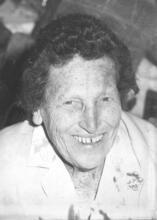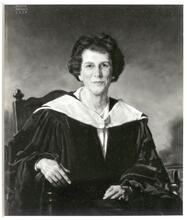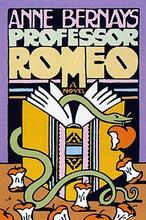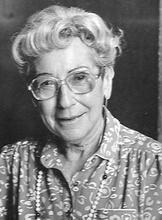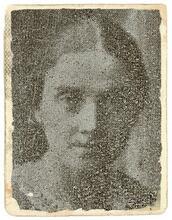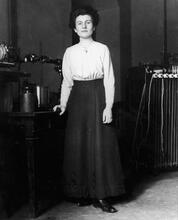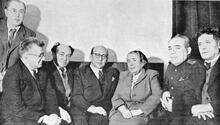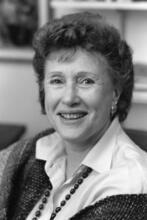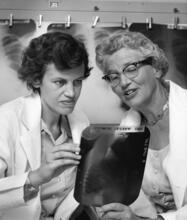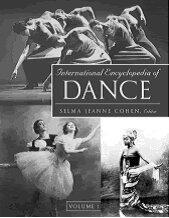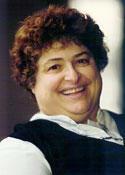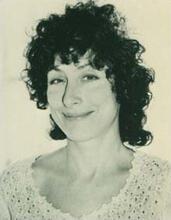Joyce Jacobson Kaufman
A pioneer in the field of physical chemistry, Joyce Kaufman graduated from the Johns Hopkins University when it was an all-male institution in 1949 and earned her PhD there in 1960. She published over 300 articles and other scholarly works over a long and distinguished career. Kaufman’s research yielded groundbreaking work in the fields of pharmacology, drug design, quantum chemistry, and chemical physics of energetic compounds such as explosives and rocket fuels. Among her most distinguished contributions are a novel strategy for computer prediction of toxicology and drug reactions, and chemical calculations on carcinogens. She received many honors including an honorary doctorate from the Sorbonne and the American Chemical Society’s Garvan Medal in 1973 for her exceptional research accomplishments in theoretical and quantum chemistry.
Early Life
Born on June 21, 1929, in the Bronx to Robert and Sarah (Seldin) Jacobson, Joyce Jacobson was raised in Baltimore, Maryland, after her parents separated in 1935, living with her mother and immigrant maternal grandparents. She grew up in a traditional Jewish family. In 1940, her mother married Abraham Deutch, a successful roofer. Deutch, who was born in Riga, immigrated to the United States in 1924 after having spent seven years as a halutz [pioneer] in Palestine. He raised Joyce as his daughter.
At the age of eight, Joyce was picked to attend a summer course at Johns Hopkins University for gifted children in math and science. In 1945, she was admitted as a special student to Johns Hopkins, which did not grant women regular student status until 1970, and earned her BS in 1949. It was there that she met Stanley Kaufman, a returning veteran from World War II and an engineering student. They were married on December 26, 1948, and divorced in 1982. Their daughter, Jan Caryl Kaufman (b. 1955), was ordained in 1979—one of the first female rabbis in the United States and one of the first three women admitted to the Conservative rabbinate.
Career and Accolades
After graduating from Johns Hopkins, Kaufman worked as a librarian and then as a research chemist at the Army Chemical Center (Edgewood, Maryland). Encouraged by her undergraduate professor of chemistry Dr. Walter Koski, she returned to Johns Hopkins in 1952 and enrolled formally in a PhD program there in 1958.
In 1960, Kaufman earned her doctorate and a long-overdue Phi Beta Kappa key (as a special student, she could not receive this award when she graduated with her bachelor’s degree). In 1962, she was appointed visiting scientist at the Centre de Mécanique Ondulatoire Appliquée at the Sorbonne and moved to Paris with both her mother and daughter. In 1963, she received a D.E.S. très honorable in theoretical physics from the university.
Kaufman went to the Research Institute for Advanced Studies of the Martin Marietta Company, first as a scientist in the quantum chemistry group and finally as leader of the group. In 1969, she joined Koski’s research group at Johns Hopkins as principal research scientist and was also appointed associate professor of anesthesiology at the Johns Hopkins School of Medicine. In 1976, she was appointed associate professor of plastic surgery. Recipient of numerous awards, Kaufman was named une dame chevalière of France in 1969 and received the Garvan Medal of the American Chemical Society in 1973, in recognition of her exceptional research accomplishments in the application of theoretical and quantum chemistry. The following year, the Jewish National Fund honored her as one of the ten outstanding women in Maryland. In 1981, she was elected membre correspondant of the Académie Européenne des Sciences, des Arts, et des Lettres.
Impact and Non-Academic Roles
Kaufman’s research yielded groundbreaking work in the fields of pharmacology, drug design, quantum chemistry, and chemical physics of energetic compounds such as explosives and rocket fuels. Among her most distinguished contributions are a novel strategy for computer prediction of toxicology and drug reactions, and chemical calculations on carcinogens.
She served on the editorial advisory board for John Wiley Interscience Publishers and as editor of the Benchmark Book series. She has also edited the journals Molecular Pharmacology, International Journal of Quantum Chemistry, Journal of Computational Chemistry, and Journal of Explosives. She was a consultant to the National Institutes of Health, a member of the National Academy of Sciences Committee on Nuclear Science, and a member of the National Science Foundation Evaluation Committee on the evaluation of supercomputers. Kaufman was the author of over three hundred publications.
Joyce Jacobson Kaufman died on August 26, 2016.
Koski, Walter S. “Joyce Jacobson Kaufman.” In Women in Chemistry and Physics: A Biobibliographic Sourcebook, edited by Louise S. Grinstein, Rose K. Rose, and Miriam H. Rafailovich (1993): 299–313.
Perkins-Frantz, Jennifer. “Dr. Joyce Kaufman Broke Ground in Science, Gender.” Jewish Times. September 8, 2016.
Rasmussen, Frederick N. Obituary. Baltimore Sun. September 14, 2016.


